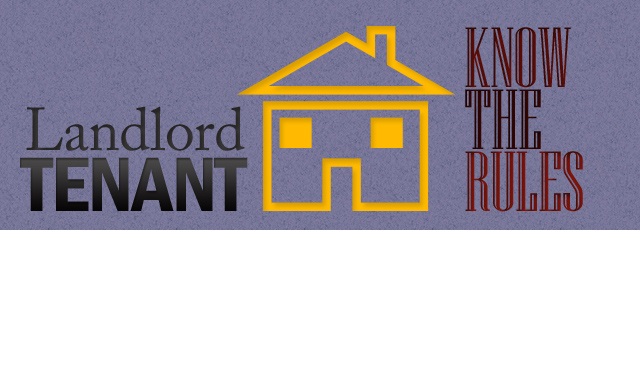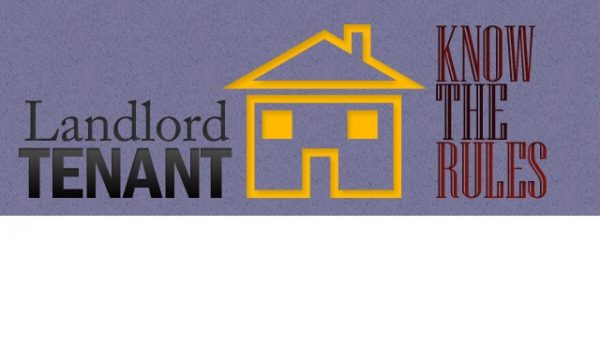As people move from place to place in search of greener pastures, they leave their original home and come to settle in completely strange abodes. This has brought with it the need to let accommodation either for residence or for business. The need to regulate the relationship between landlords and tenants so as to avoid arbitrary increment in rent and wrongful eviction became also imperative.
The relationship between a landlord and a tenant is that of owner and occupier. The landlord owns the land while the tenant is entitled to use and occupy the land subject to payment of rent and good behaviour. The relationship of landlord and tenant is contractual and thus, its terms cannot be altered by either party without the agreement of the other. The parties are bound by the terms of the agreement.
A tenant enjoys a number of rights:
1. A tenant has the right to question his landlord’s authority to increase rent unreasonably and arbitrarily.
2. A tenant can maintain an action in trespass against his landlord; a tenant can also obtain an injunction to restrain his landlord from ejecting him in an unlawful manner.
3. Tenants are entitled to statutorily stipulated periods of notice to quit.
4. A tenant has the right to quiet and peaceful enjoyment of the premises.
5. The tenant’s entitlement includes the right to privacy; freedom from unreasonable disturbance, exclusive possession of the premises subject to the landlord’s restricted right of inspection and the use of common areas for reasonable and lawful purposes.
6. Where a tenant with the previous consent in writing of the landlord, effects improvements on the premises, he/she shall be entitled to claim compensation for the effected improvements on quitting the premises.
A tenant has several obligations like:
1. Paying the rent at the times and in the manner agreed
2. Paying all existing and future rates and charges not payable by the landlord by law
3. Keeping the premises in good and tenantable condition, reasonable wear and tear excepted
4. Permitting the landlord and his agents to view the condition of the premises and effect repairs in necessary parts of the building during reasonable hours.
5. Not making any alterations or additions to the premises without the written consent of the landlord
6. Not assigning or sub-letting any part of the premises without the written consent of the landlord; and notifying the landlord where structural or substantial damage has occurred to any part of the premises as soon as possible.
The landlord can bring an action against his tenant for forfeiture if there is any serious act of misbehaviour or the tenant is in breach of fundamental covenants in the tenancy agreement. This misconduct however, should be one touching directly in the title of the landlord.
A landlord is obliged to effect external repairs where his tenant has expressly covenanted to keep the interior in good condition and a landlord should provide certain basics that are fundamental to a tenant’s enjoyment of an apartment.
It is equally important to note that subject to any provision to the contrary in a tenancy agreement, the landlord shall not disturb the tenant’s quiet and peaceable enjoyment of the premises. The landlord must pay all rates and charges as stipulated by law, keep the premises insured against loss or damage, not terminate or restrict the use of a common facility or service for the use of the premises. The landlord must not seize any item or property of the tenant or interfere with the tenant’s access to his property.
It is important to state here that in the absence of an express repairing covenant, the landlord is not bound to effect any repair as the rule is caveat lessee which requires the tenant to examine the premises and decide whether to take or not. Once he takes the premises, the landlord is not taken to warrant that it is fit for habitation. The fact that the tenant did not inspect the premises or notice some defects is irrelevant. It is the business of the tenant to satisfy himself that the premises are fit for the purpose for which he wants to have them.
However, the landlord owes a duty to his tenant to perform structural repairs on the premises and maintain common areas of a building. No tenant can stop payment of rent because the premises lack basic amenities. The only option open to the tenant is to either provide it or look for alternative accommodation.
About the Writer: Evans Ufeli is a lawyer and the author of acclaimed novel, ‘Without Face’. He is also an Alumni member of the Writers Bureau, Manchester, a highly sought-after conference speaker with a passion for the concept of change. He lives in Victoria Island, Lagos. You can contact him via Facebook: Evans Ufeli, Email: [email protected], Twitter: @Evansufeli and Phone: 08037712353. He blogs at www.ethicsafrica4u.wordpress.com.


